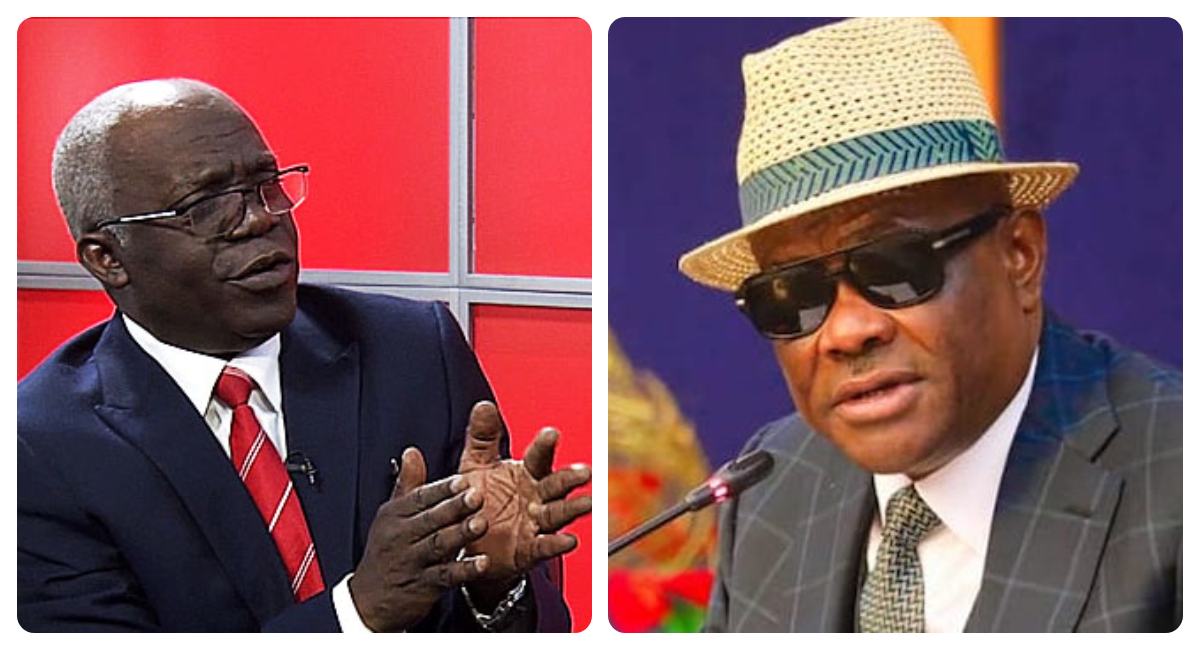Minister of the Federal Capital Territory, FCT, Nyesom Wike has defended building houses for judges despite criticism from human rights lawyer Femi Falana.
Cyber Reporters recalls Falana called the construction unconstitutional and potentially influential.
However, Wike’s aide, Lere Olayinka, disagreed, stating that providing accommodations for judges and other government officials is permissible.
Olayinka emphasized that while democracy has separation of powers, checks and balances allow for some interdependence among branches.
In a statement, Olayinka said: “Wouldn’t there still be need for land from the FCT Ministry if the houses were to be built by the judiciary? And if it is about exercising influence over the judiciary, is allocation of lands not enough?
“Also, the money to build the houses will still have to be appropriated by the National Assembly, peopled by politicians who also have cases before judges. Should we also say that bringing the budget of the judiciary to the National or State House of Assembly for passage will influence judges if cases involving the lawmakers are brought before them?
“Police and other security agencies provide security for judges and they do have court cases too, is Uncle Femi Falana also saying that the security agencies will influence the judges?
“Anti-Corruption agencies like the Economic and Financial Crimes Commission (EFCC) and the Independent Corrupt Practices and Other Related Offenses Commission (ICPC) investigate and prosecute judges, will Oga Femi Falana also say that investigation and trial of judges for alleged corruption should not be done by the anti-graft agencies so as to avoid influencing the judiciary?
“May be too, judges should create their own hospitals so that doctors, especially those in public hospitals won’t influence them. After all, medical practitioners too do have cases in court.
“Finally, may be judges should stop having friends and family members. They should be operating in seclusion so that no one will influence them. Or they should just create their own world so that they won’t be influenced by anyone.”
Olayinka advised that they should focus on making judges comfortable and secure to do their jobs, rather than worrying about the executive branch doing its thing.
He pointed out that even in the United States, where Supreme Court justices are often affiliated with political parties, they still manage to do the right thing.
“The Judicial Conference of the United States, and the Administrative Office of the U.S. Courts do not play any role in the nomination and confirmation of the justices.
“The justices are even known by their political leanings and today, the U.S. Supreme Court has a 6-3 conservative majority, meaning six for the Republican Party and three for the Democrats. Yet, the justices do their jobs without anyone accusing them of being influenced by the President and members of his party in the Senate and House who appointed them,” he said.






